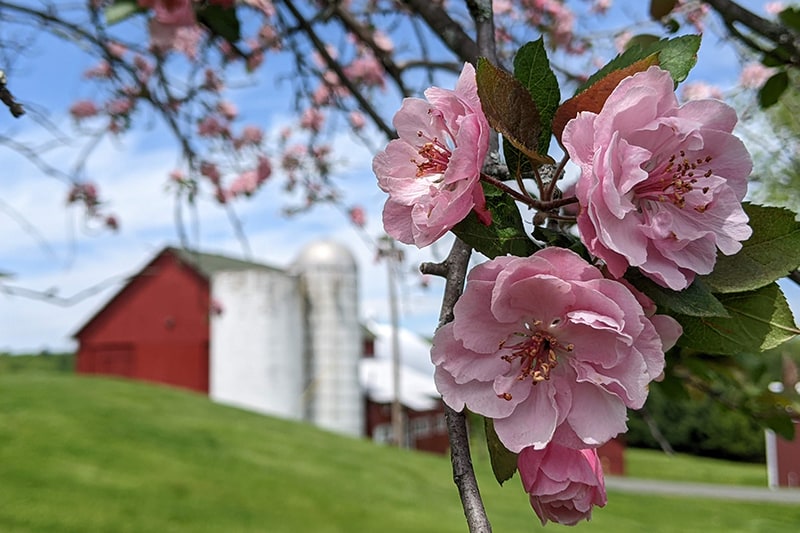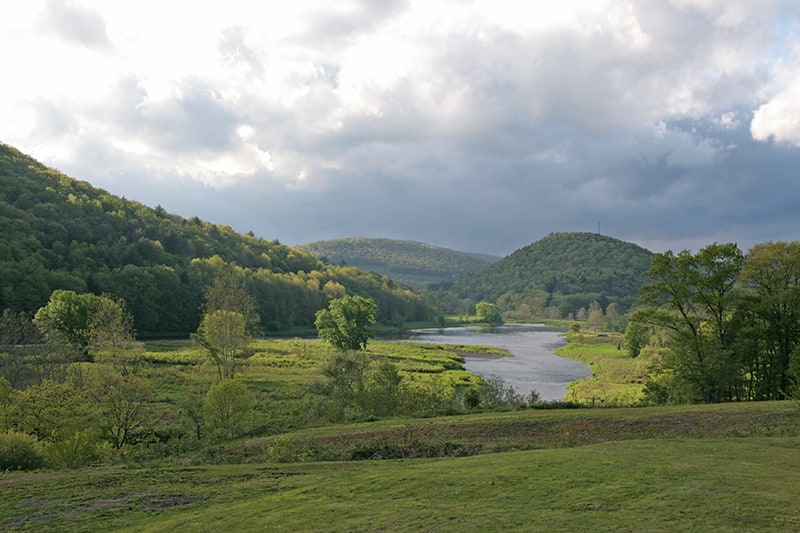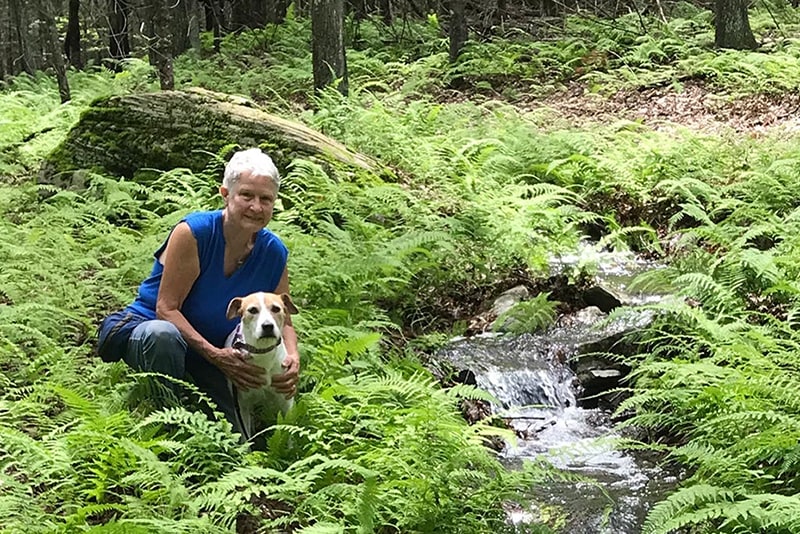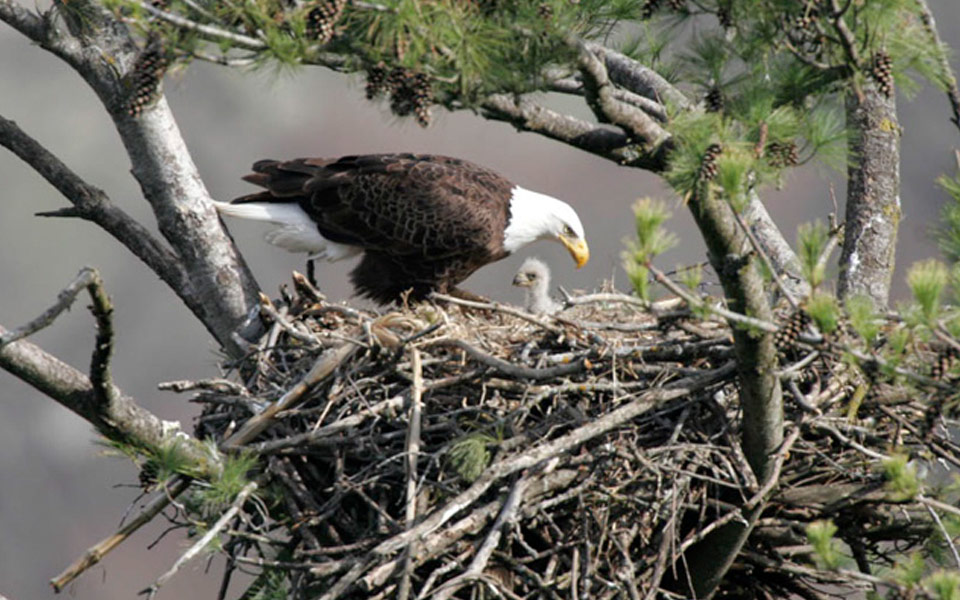Leaving a Legacy
We believe that we are stewards not just of the conservation easements that we hold, but of the Upper Delaware River region itself.
Protecting the Upper Delaware River region can be part of your legacy, and an enduring gift to future generations. If this sounds like the kind of legacy you would like to leave, we can discuss (along with your tax and financial advisor) strategies to help you support the Conservancy's land protection mission while also maximizing your tax and financial benefits.
Donate Stock or Real Estate
Gifts of stock earn a federal income tax deduction equal to the gift’s fair-market value, and if the stock has appreciated, the landowner does not have to pay capital gains on the appreciated value.
Likewise, landowners who donate real estate do not have to pay federal taxes on the donated property’s appreciated value. After speaking with you, the Conservancy will determine how to maximize the conservation impact of your real estate gift. The Conservancy may:
- Keep the property for use as a nature reserve;
- Protect the property with a conservation easement and sell it to raise funds to support our ongoing conservation efforts; or
- Sell the property without a conservation easement and use the proceeds to support our ongoing conservation efforts.
For current conserved real estate and tradelands for sale, visit our Conservation Buyer Program
Take Advantage of Planned Giving Strategies
Donate land or other assets to the Delaware Highlands Conservancy in your will. A deduction from the value of one’s taxable estate may be allowed for land bequeathed for public purposes. The Directors of the Delaware Highlands Conservancy would be pleased to explain the giving options to you, your lawyer and your accountant, including IRA or life insurance beneficiary designation or a charitable bequest.
Download our Leaving a Legacy Brochure
Legacy Leaders
Our Legacy Leaders (below) have included the Conservancy in their will or estate plans, or have helped a parent, partner or loved one leave a legacy. We hope you will consider joining them to help ensure that we can carry out our mission into the future. If you would like to learn more, or if you have already considered us in your estate plans, please contact us at info@delawarehighlands.org or 570-226-3164.
Sue Currier
Patricia Diness
Helen Early (deceased)
Mary Evans
Arnold Friedman (deceased)
Linda Gearhart (deceased)
Susanne Hand & David Kinsey
Susan Hartney
John Lipari (deceased)
Karen Lutz
Harold MacGregor (deceased)
Dorothy Merrill (deceased)
Mary Sue Sweeney Price
Kimberly (Mimi) Raleigh, Read her story »
Denise Risley & Will McTarsney
Brenda Seldin
Richard Snyder (deceased)
Charles Victor Traeger
Sigrid Wilshinsky (deceased), Read her story
Jonathan Wind
Barbara Yeaman, Read her story
Giving Chart
Gift Type |
Description |
Conservation Benefit |
Possible Benefits To You
|
| Charitable IRA Rollover | Individuals who are at least 70 ½ years old may transfer up to $100,000 from a traditional or Roth IRA to a 501(c)3 public charity. | Funds assist the Conservancy with meeting immediate conservation and programmatic priorities. | In December 2012, Congress extended tax-free distributions from Individual Retirement Accounts for charitable contributions through 2013. Annual tax-free distributions to charity from an IRA, up to $100,000 per taxpayer are allowed. |
| Cash Gifts | Outright gifts. | Gift is immediately available for ongoing programs and activities. | Income tax deduction and potential offset in capital gains tax. |
| Bequests | Leave certain assets to the Conservancy in your will. | Bequests enable the Conservancy to plan for future conservation projects and activities. Bequests of land allow the Conservancy to create a public conservation area on your property or to protect your property with an easement and sell it to generate valuable income. Anyone considering such a gift should consult with the Conservancy staff before finalizing arrangements. | Retain ownership and management of assets during your lifetime. In certain instances, Section 2031(c) of the Internal Revenue Code allows beneficiaries to exclude up to 40% of the otherwise taxable value of land (not structures) that is permanently protected with a qualifying conservation easement from the estate. There are a number of criteria that must be satisfied to qualify for this exclusion, and therefore individuals interested in Section 2031(c) should work with their tax advisors or estate planners to explore this option in more detail. |
| Tangible Personal Property | Gifts of personal property such as automobiles or jewelry. | Proceeds from sale of personal property benefit conservation programs. | Full value of items can be deducted from donor’s taxable income. |
| Marketable Securities | Gifts of securities such as stocks, bonds, and mutual fund shares. | Proceeds from sale of securities benefit conservation programs. | Proceeds from sale of securities benefit conservation programs. |
| Charitable Remainder Trust | You place assets in a trust, managed by an outside trustee. The trust pays you income during your lifetime, after which the remaining assets are donated to the Conservancy. | Trust proceeds support the Conservancy and enable the Conservancy to incorporate donation into land protection planning. | Receive income; part of gift is tax-deductible; avoid capital gains on appreciated assets donated to trust; flexible term (lifetime or set number of years); opportunity to diversify assets; and potentially increased income. |
| Charitable Lead Trust | Annual income from a trust is paid to the Conservancy during your lifetime, after which the remaining principle is given to a non-charitable beneficiary (or beneficiaries) such as children. | Annual payments from the trust support conservation programs. | Reduced income, gift, or estate tax; family and/or beneficiaries retain ownership of the assets. |
| Retained Life Estate | You make a gift of real estate and retain the right to live on the property for life or a set number of years. | Allows the Conservancy and donor to plan for the appropriate use of the land donation and support conservation in Pike and Wayne Counties, PA and Delaware and Sullivan Counties, NY. | Property removed from taxable estate; income tax deduction; avoidance of capital gains on transfer of property; retained use of property. |
Thank you to the Columbia Land Conservancy for providing this chart. This information is intended as general information, not specific legal or financial advice. You should consult your financial and/or legal adviser as to which options may be most beneficial for you.
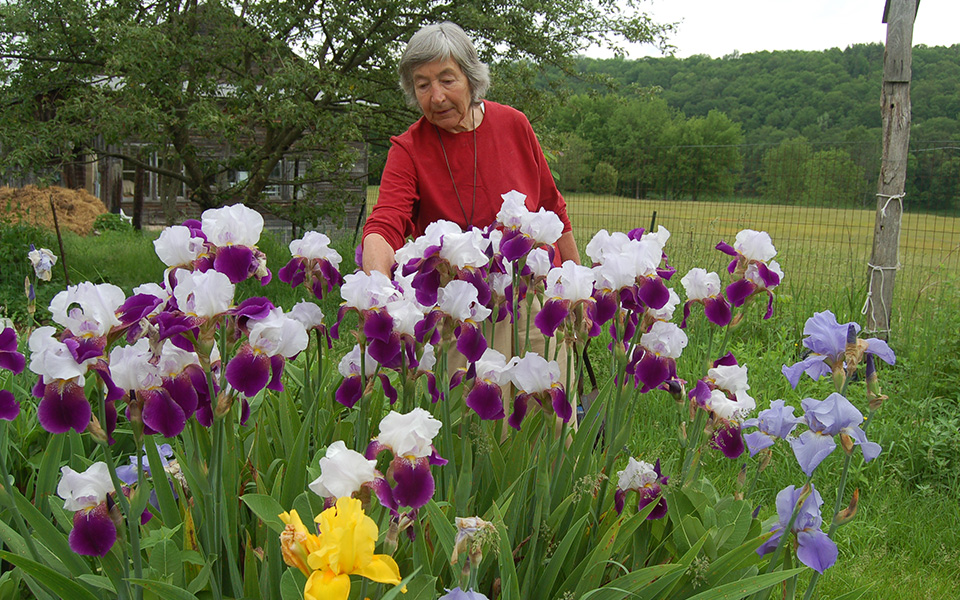
I know of no movement as radical, as convincing, as effective, and as compassionate as the land trust movement. It is like water —seeping into the most unexpected places, rising, falling, rising, filling the basins of the human heart.
Terry Tempest Williams
Author & conservationist

